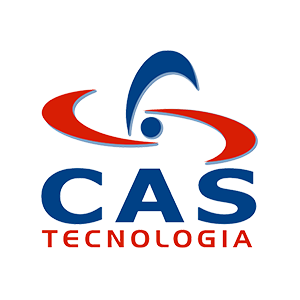Customer Success Stories
Owning the PCB Design Process with Altium
“Product design capability was strongly increased. Instead of having two environments for schematic and layout each with different libraries, strong integration between these two interfaces in Altium Designer led to significantly improved PCB and product design.”
Discover how CAS Tecnologia, a hardware development firm in Brazil, used Altium Designer to take ownership of their PCB design process.
CAS Tecnologia is a São Paulo-based technology firm who apply scientific and engineering principles to help improve efficiency across a wide range of government services, as well as environmental, financial, and telecommunication projects.
CAS’s efforts touch thousands of lives every day, from data security to managing the distribution of natural and public utility resources like electricity, water and gas.
The employee-owned company was the very first of its kind in Brazil; under its unique structure employees can purchase company stock in just 12 months. Yet, CAS struggled to own its own PCB design process for years.
With a reliance on outsourcing to complete critical parts of a product design process, CAS found themselves dependent on other companies for their financial success and future growth potential.
To continue growing in the intelligent automation and telemetry industry, CAS had to bring all of their design processes in-house for complete control and independence. Self-sufficiency became their ultimate goal; a significant aspect of their restructuring required integrating an electronics design process into their existing mechanical workflow.
And so, they chose Altium Designer as their electronics design environment for intelligent automation and telemetry technology.
CAS engineers used Altium Designer for the entirety of the RS2000 Z-MONO smart device's development, taking advantage of library management tools, a powerful and integrated interface connecting schematics and layout and customizable rule management.
Meeting Unique Design Challenges
Developing products for the management and distribution of electricity, water, and gas also requires a high-degree of electrical complexity. Putting these two requirements together creates a very specific set of requirements from electronic design software.
As CAS became more familiar with Altium Designer, they quickly began to reap the rewards. Carlos Viotto, Engineering Manager at CAS, reported that after introducing Altium Designer to the CAS engineering department, “Product design capability was strongly increased. Instead of having two environments for schematic and layout each with different libraries, strong integration between these two interfaces in Altium Designer led to significantly improved PCB and product design.”
At long last, mechanical products could now be developed in-sync with their electronic counterparts using Altium Designer. With a powerful Native 3D PCB editing engine, CAS engineers could visualize their mechanical enclosures directly in the Altium Designer environment to ensure their PCB design fit as expected.
After the eight-month development cycle ended, CAS reported that their complex design requirements would not have been possible without all of the powerful features present in Altium Designer. The success of this project positions CAS to meet the growing demand for innovative technology products to manage and control Brazil’s vast natural resources.
Putting Advanced Technology to the Test
One of the first big tasks for Altium Designer was an ambitious CAS undertaking, their RS2000 Z-MONO smart device that features a remote communication interaction for energy meters. A built-in ZigBee radio module provides meter data communication that monitors a meter’s output for easy energy cutting and reconnection that can be remotely performed.
CAS engineers used Altium Designer for the entirety of the RS2000 Z-MONO smart device's development, taking advantage of library management tools, a powerful and integrated interface connecting schematics and layout and customizable rule management.
The ability to assume full control over design rule checks ensured CAS engineers could implement necessary changes without compromising layout integrity. With easy access to components without the need for additional software, PCB development was smooth sailing from start to finish.
After the eight-month development cycle ended, CAS reported that their complex design requirements would not have been possible without all of the powerful features present in Altium Designer.
The success of this project positions CAS to meet the growing demand for innovative technology products to manage and control Brazil’s vast natural resources. CAS Tecnologia’s investment in Altium Designer helps them meet this growing demand with an independent workflow process, opening the door for new product innovations at the lowest possible cost and time-to-market.

